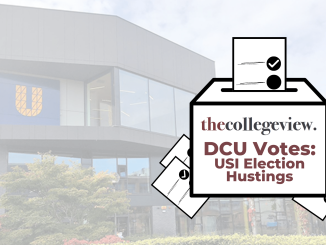
A study into Irish third-level students’ experiences of harassment, violence, sexual assault and stalking has found that just 3 per cent report unwanted experiences, despite 16 per cent encountering them.
The findings, part of the Union of Students in Ireland’s (USI) ‘Say Something’ campaign, were recently published by the organisation in Trinity College Dublin.
Laura Harmon, USI Vice President for Equality and citizenship, is concerned by these low reporting rates. “Reasons students stated for not reporting included that they felt they might be blamed or that they didn’t feel the incident was serious enough to report”, she said.
Other findings revealed that 10 per cent of women and 5 per cent of men have experienced obsessive behaviour that made them afraid or concerned for their safety, while 19 per cent of men and 17 per cent of women have been photographed or filmed without their consent.
It was also found from the study that 17 per cent of LGBT students were the victims of obsessive behaviour as opposed to 11 per cent of non-LGBT students.
Carried out by the USI in January and February 2013, the study surveyed over 2,750 students online. Harmon explained that “the lack of research prompted me to undertake this project. This is the first study of its kind for third-level students in Ireland”.
Commenting on the findings, DCU Welfare Office Lorna Finnegan said “the results are worryingly high for people photographed without consent. This has been brought to the forefront of our society in recent weeks through incidents such as Slane girl.”
“Going forward it is important to continue to raise awareness around this issue in particular and let students know the importance of talking about all of these issues”, she added.
When asked what will be done to reduce these statistics and improve the situation, Laura Harmon said that the “USI is formulating a campaign with the Centre for the Prevention of Domestic, Sexual and Gender-Based Violence which will raise awareness of the support services available”.
“It will also involve training for Students’ Unions around the issues. Ensuring that campaigns are not focused on blaming the victim is vital. We need to shift focus towards highlighting that these actions are wrong by those who perpetrate them.”
Suzanne Cooper




Leave a Reply